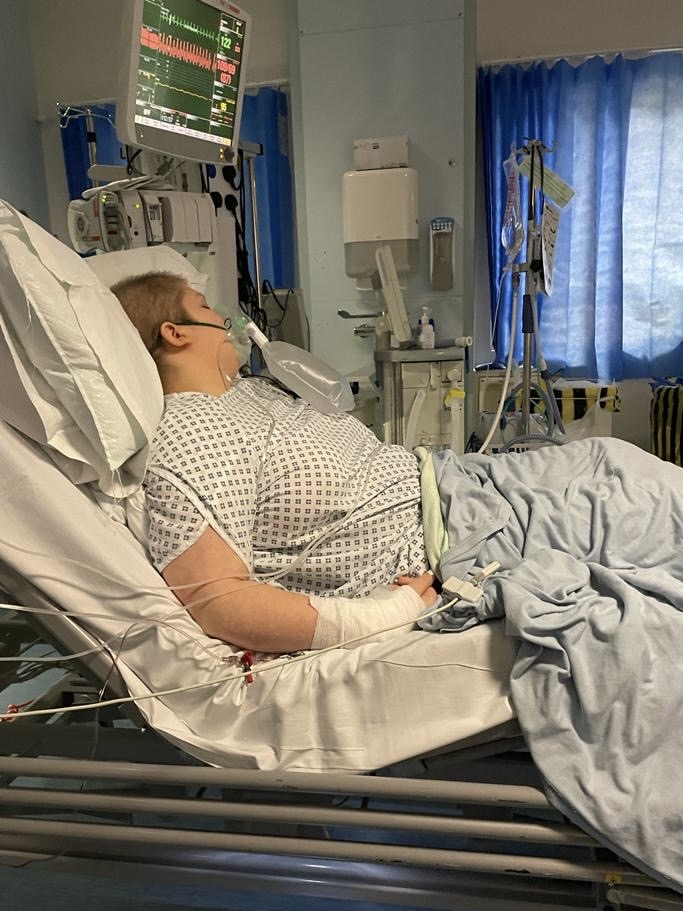Signs of cancer: Lumps and swellings
Unusual lumps or swellings are one of the most common signs of cancer in young people. Use this page to find out more about what to do if you notice any new lumps or swellings on your body.
- These lumps and swellings can be anywhere on your body
- You know your body better than anyone else, so if you notice changes that are worrying you, you should get them checked out
- Lumps and swellings don’t mean you definitely have cancer, but if you notice anything unusual, make an appointment with your GP
- Below you’ll find more information about how you can best explain your symptoms to your GP
When should I go to the GP?
You should make an appointment with your GP if you notice a new lump or swelling anywhere on your body and there’s no specific reason for it.
For example, if you bump your head you might get a lump or swelling – this is different because it’s the result of an accident.
However, if you notice a new lump or swelling anywhere on your body that’s not the result of a bump or accident then it’s important to get it checked by your GP.
Everyone’s body is different, so what might be normal for one person might not be normal for someone else. You know your body better than anyone else, so if you notice something that doesn’t feel right or is unusual for you then speak to your GP.
What should I tell the GP about my symptoms?
It’s important you tell your GP as much as you can about the lump or swelling you’ve noticed. It might be hard to remember exactly what you noticed and when, but we’ve put together a list of questions you can answer to make sure you give your GP as much info as possible.
Not all GP appointments will be in person, you might speak to your GP on the phone or via video call first. Even if you’re not speaking to your GP in person it’s still really important to give as much information as possible.
You can copy and paste this list below into the notes app on your phone or a Word document, or you can write down your notes in a notebook and take it to the appointment with you:
- Where is the lump?
- How long has it been there?
- Does it hurt?
- Have there been any changes in size or the way it looks and feels?
- Is there anything that makes it better or worse?
- Are there particular times of the day where it’s worse? Or does it get worse after certain activities?
- Is there only one or have you noticed others? (If you had other lumps or swellings that have now gone down, it’s still important to mention them)
- Are there any other changes to your body that you’ve noticed?
What should I do if the lump is in an awkward area?
Sometimes it can feel awkward to talk about lumps and swellings if they’re on a part of your body that you don’t want to talk about, like your testicles (balls) or breasts for example. Remember GPs are medical professionals and they deal with things like this every day. Try to be as open with them as possible about the symptoms you’re worried about – they should try to make you feel as comfortable as possible too.
You can take someone with you to your GP appointment as well, and they might be able to support you with any difficult or uncomfortable conversations. Find more advice on visiting the GP here.
CoppaFeel! have some great resources to explain how best to check your chest, and Movember share lots of information on how to check your testicles and when to know if something is wrong.
What could it be?
Unusual lumps or swellings could be a sign of lots of different types of cancer. Using the pages below you can find out more about the other symptoms associated with each of these types of cancer.
Again, it’s important to remember that having any of these symptoms doesn’t mean you definitely have cancer, but if you notice anything unusual you should book an appointment to see your GP.
Most common signs of cancer in young people






PIF TICK accredited information
The Patient Information Forum is the UK membership organisation and network for people working in health information and support. The PIF TICK is the UK-wide Quality Mark for Health Information.

